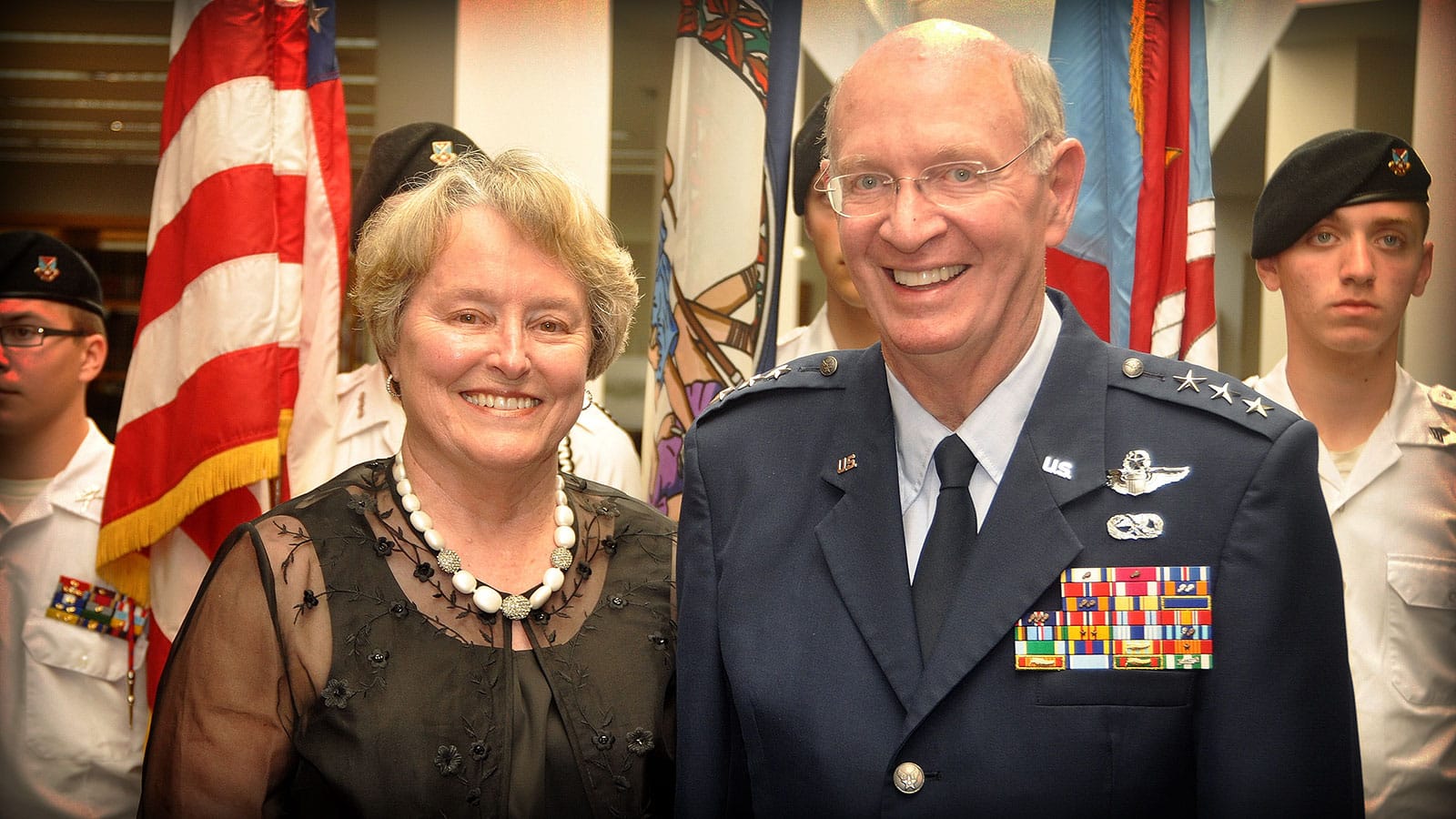

Fork Union Military Academy's ninth president, Lt. General John E. Jackson, Jr., arrived on campus in 1994 and quickly began breaking new ground. He had a modern new dining hall to build. In the seventeen years that followed, General Jackson continued breaking new ground for the school, and the roar of backhoes and the ring of mason's trowels became the familiar background music of his tenure as president of the Academy.
To hear him tell it, he did little more than spend his time walking around, drinking coffee and looking concerned, his brow appropriately furrowed. Given the opportunity to accept credit for any accomplishment of his presidency, large or small, General Jackson was always quick to defer, explaining that "the Lord has done it all and the credit goes to Him."
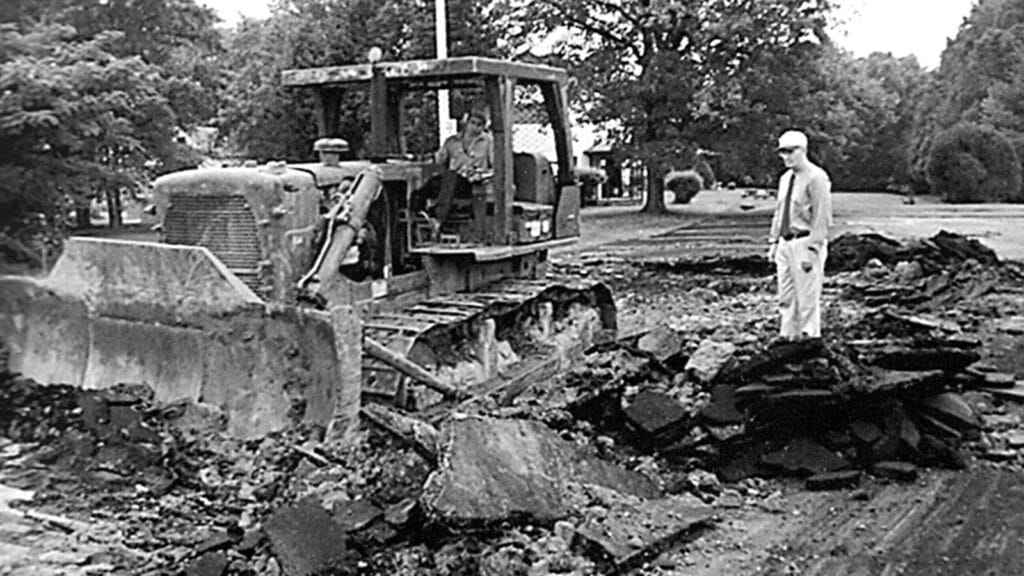
This outwardly humble man rose from equally humble roots to become the highest-ranking military officer to serve as president in the Academy's history.
John E. Jackson, Jr. was born in South Charleston, West Virginia in 1939 and was raised in St. Albans, West Virginia, a small community of about 10,000 located in the Kanawha Valley at the confluence of the Kanawha and Coal Rivers. The famous James River & Kanawha Turnpike passed through St. Albans, helping connect the Ohio River with the James River and Kanawha Canal system during the 19th century, fueling the growth of towns such as Fork Union, located along this important trade route.
Following his graduation from Alderson-Broaddus College in 1961 with a Bachelor of Science degree in natural science, Jackson married Barbara Quisenberry. Decades later, he was still referring to Barbara as "my bride" and describing her as "my better seven-eighths."
In May, 1963, Jackson entered the U. S. Air Force through the Officer Training School at Lackland Air Force Base in Texas. The young Second Lieutenant began rising through the ranks as an organizational maintenance officer. By 1967, he was a pilot with the rank of Captain co-piloting KC-135 tankers on refueling missions out of Loring Air Force Base in Maine.
Soon it was the summer of 1969. The Beatles were broken up, John Lennon and Yoko Ono recorded "Give Peace a Chance" from their "bed-in" at the Queen Elizabeth hotel in Montreal, and a young Captain Jackson headed off to duty in Vietnam with the 22nd Tactical Air Support Squadron. As Neil Armstrong walked on the moon and 400,000 young people gathered at Woodstock, Captain Jackson piloted a small Cessna O-1 "Bird Dog" airplane over hostile territory as a Forward Air Controller flying out of Soc Trang Air Base in the Republic of Vietnam.
The duties of an FAC typically involved flying low and slow over enemy-held territory, marking targets for the tactical fighter-bombers to hit and directing their strikes, all while dodging ground fire and avoiding missiles in a vulnerable light airplane.
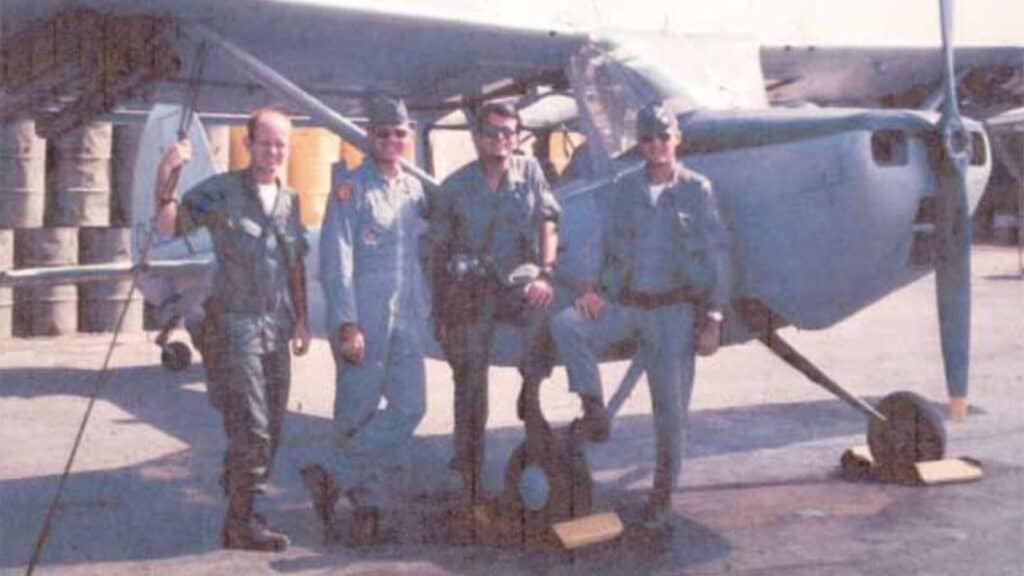
Jackson was always characteristically reticent on the subject of his service in Vietnam and reluctant to speak of those days, but the record shows that then Captain Jackson, call sign "David Three-One," flew 398 combat missions during his months in Vietnam.
He performed the duties required of him in a manner that earned him the Distinguished Flying Cross, the Bronze Star Medal, and the Air Medal with 14 oak leaf clusters (indicating this medal was earned a total of fifteen times), among other awards.
The Distinguished Flying Cross is awarded for individual acts of heroism or extraordinary achievement in aerial flight above and beyond the call of duty.
With his typical self-deprecating humor, General Jackson described these medals as having been awarded simply for "being shot at...a lot."
Jackson returned from Vietnam in April 1970 and was stationed at Fairchild Air Force Base in the state of Washington. Because of his hours of flight time in combat, he moved to the left seat of the KC-135 tankers he was assigned to fly, becoming the aircraft commander instead of the co-pilot.
His Air Force career became almost a blur of movement, education, and activity as Jackson was moved from new responsibility to new responsibility, adding experience and rank as he went.
Promoted to Major in 1972, Jackson spent time as an instructor pilot at Moody Air Force Base in Georgia. He graduated with distinction from the Armed Forces Staff College in Norfolk, VA and soon added a master's degree in business and personnel management from Central Michigan University.
Promoted to Lt. Colonel in 1976 and Colonel in 1980, Jackson continued growing through a variety of staff and leadership positions, both at the U. S. Air Force Headquarters in Washington, DC and at a variety of bases throughout the United States. He was selected to attend the National War College in 1980.
In the early 1980s, Colonel Jackson served as the Director of Operations, commander of the 82nd Air Group, and then commander of the 82nd Flying Wing at Williams Air Force Base in Arizona.
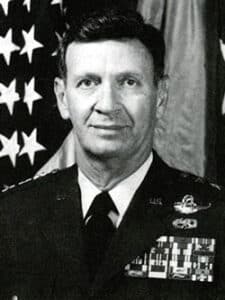
Jackson was promoted to Brigadier General in November 1986 and served as director of manpower and organization, and then director of personnel programs for the Air Force. The rank of Major General came in September 1989. General Jackson was elevated to commander of the Air Force Military Personnel Center at Randolph Air Force Base. He then was named commander of the 15th Air Force and was promoted to Lieutenant General. Lt. General Jackson finished his Air Force career as the Vice Commander of the Air Mobility Command at Scott Air Force Base.
During his military career, in addition to his combat medals awarded for valor, General Jackson was twice awarded both the Distinguished Service Medal and the Legion of Merit.
In all, the Jacksons moved 34 times during his 31-year military career, raising a son and daughter along the way.
Amid the hustle and bustle of his active-duty career, General Jackson still committed time to Christian service. In addition to serving in his local church, he became active with the Christian Embassy and the Jesus Film Project of the Campus Crusade for Christ.
General Jackson made mission trips to Moscow, Mongolia and elsewhere to help spread the Jesus film and tell the story of the Gospel. General Jackson served as a board member of the Christian Embassy, headquartered in Washington, DC.
In the summer of 1994, General Jackson retired from service in the U. S. Air Force and answered the call to serve as the ninth president of Fork Union Military Academy.
A quote from one of General Jackson's first letters to FUMA's alumni, parents and friends, states, "The 1994-95 academic session has seen many changes. New faces may greet you at the door. A new look on campus may surprise you."
This became the theme of General Jackson's time as president of Fork Union Military Academy over the course of seventeen years. Tremendous change in the face of the Academy took place including transformation of the Perkins Technology Center, construction of the Veterans Memorial, development of a wastewater treatment plant, faculty quarters renovations, building the Estes Dining Hall, expanding the Beatty Library, renovation of the Wicker Chapel, construction of a new aquatic center, dedication of the Bronson Commons, and, ultimately, the construction of Jacobson Hall.
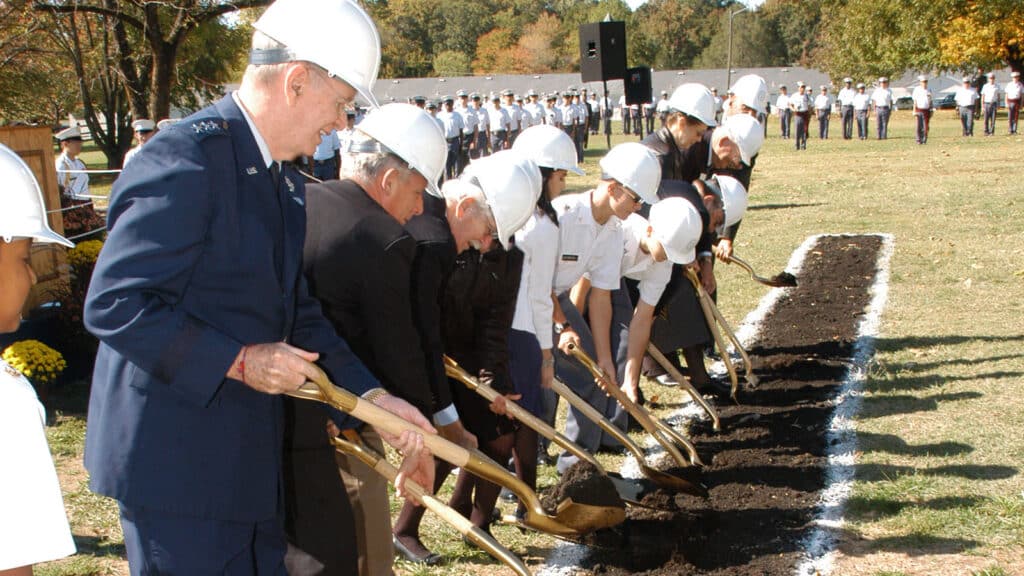

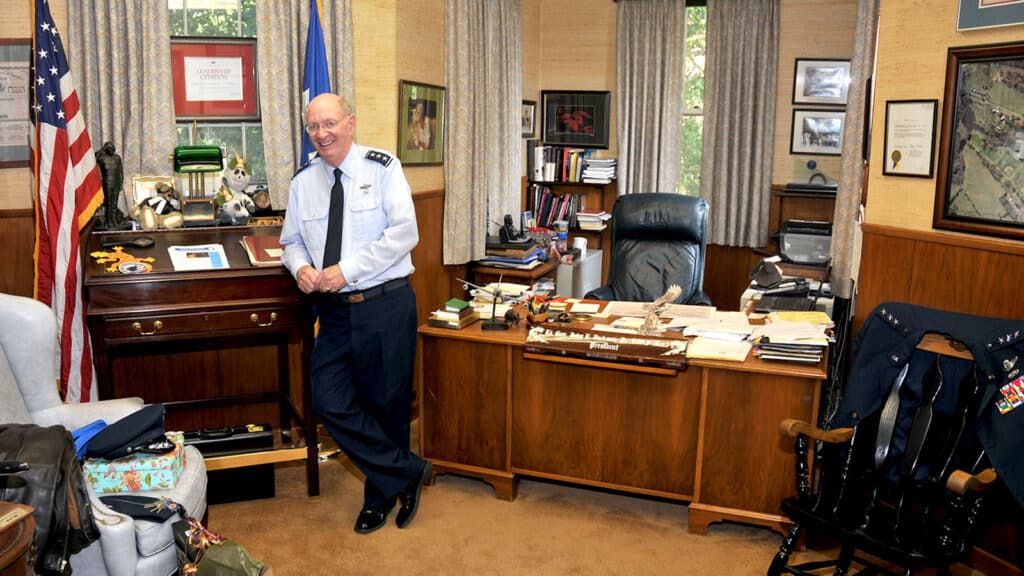
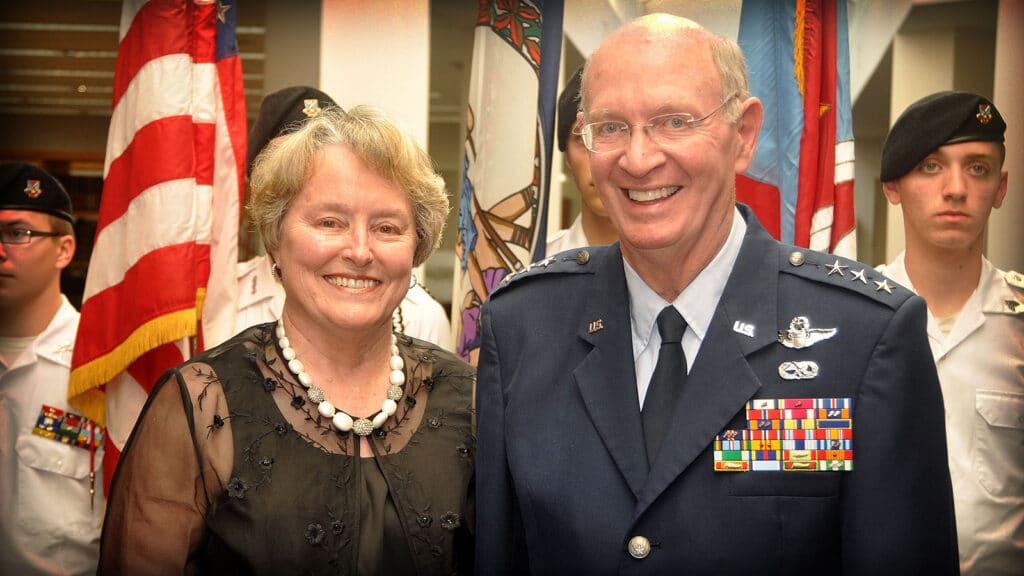
The many industrious fundraising campaigns for capital improvements and endowment growth continued to meet with success as the Academy called upon its constituents-alumni, board, family and friends-to donate year after year to the much-needed projects on campus.
Under the direction of General Jackson, the Academy also celebrated many historical traditions, including the 100th year anniversary in 1998. There were a number of Sports Hall of Fame banquets, Alumni Weekend activities, graduation exercises, Veterans Memorial services, military balls, and Parents Weekends, at each of which the Academy family and the Cadet Corps came together to uphold tradition and carry out the mission of the school.
On June 30, 2011, General Jackson retired as the 9th President of the Academy. His retirement years would be spent in San Antonio, Texas, enjoying time with his family, and in continued service to his deep Christian faith.
When he first came to the Academy in 1994 he was given responsibility by the Board of Trustees to continue the school's mission as a Christian college preparatory school. His task was to engage faculty, staff, alumni, parents and friends in this same mission. During his leadership the school experienced an increase each year in alumni participation in supporting the school through annual giving, participation in many of the events held on campus, and helping spread the word to others about the Academy. In addition, facilities growth on campus provided the Cadet Corps with better classroom, residential, and athletic facilities.
In one of his early letters to families and alumni General Jackson stated, "Fork Union continues to be your home whether you are an alumnus, parent or friend. This Academy family cares for each of you unconditionally, is proud of your accomplishments, accepting of unavoidable shortcomings, and cheering you on at every goal of life. I hope that you, too, will make every effort to cheer us on in our continuing efforts to serve young men and their families. I hope that every year you will be sure that you have 'done something for Fork Union.'"
In General Jackson's final letter to the Board of Trustees announcing his retirement, he stated, "The Lord did it all, and He did so in a manner that befits His method of lavishly blessing the effort and wonderfully leading what He is doing here with the young men entrusted to our care. I take no credit for any of this…none. To do otherwise would be laughable. He did it and we honor and praise Him for it. Words can't express how deeply Barbara and I feel about leaving Fork Union. The Academy has been our life, and we are excited to see who the Lord has in mind to take it to the next level. We will help however you wish in the process. In the meantime, I'll do what I do best…drink coffee and look concerned."

"For every house is built by someone, but the builder of all things is God."
Hebrews 3:4
“Here is what I have seen to be good and fitting: to eat, to drink, and enjoy oneself in one’s labor in which he toils under the sun during the few years of his life which God has given him; for this is his reward.”
Ecclesiastes 5:18